After someone dies, their body will wither away. However, their spirit will return to the cycle of rebirth to await their next life. In this dormant state, spirits can wait hundreds or thousands of years in order to be reborn into a suitable life.
Beings currently alive in the cycle can link with these loose spirits, inheriting their Karma for themselves. These past spirits will grant abilities based on their Karma.
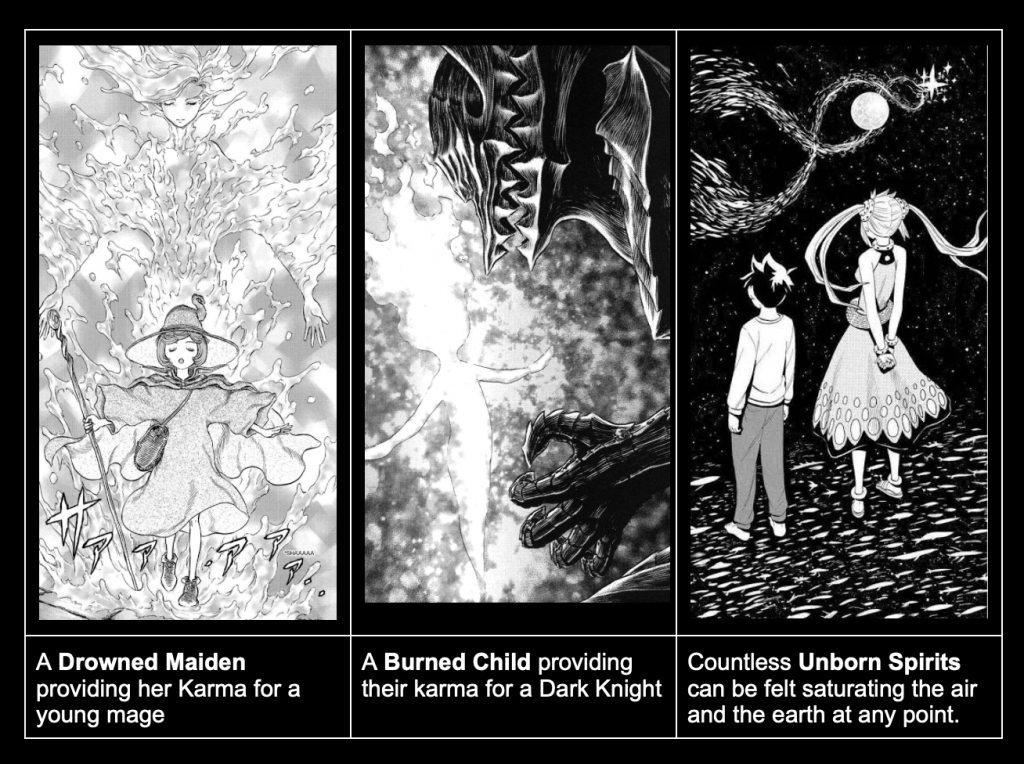
These inheritances are lifelong covenants. A child who links with a loose spirit in his youth is bound to its Karma until death, unless severed by a special circumstance.
I. Spiritual Aptitude and Awakening
Different people have different aptitudes for seeing and convening with Spirits. Those with innate talent usually develop the ability to see spirits around the age of 12. Those with high aptitudes can develop a spiritual sense earlier, and those with a poor sense can develop it in old age or never at all. A spiritual sense can be forcefully developed by guidance, training, or other means for all who are determined enough.
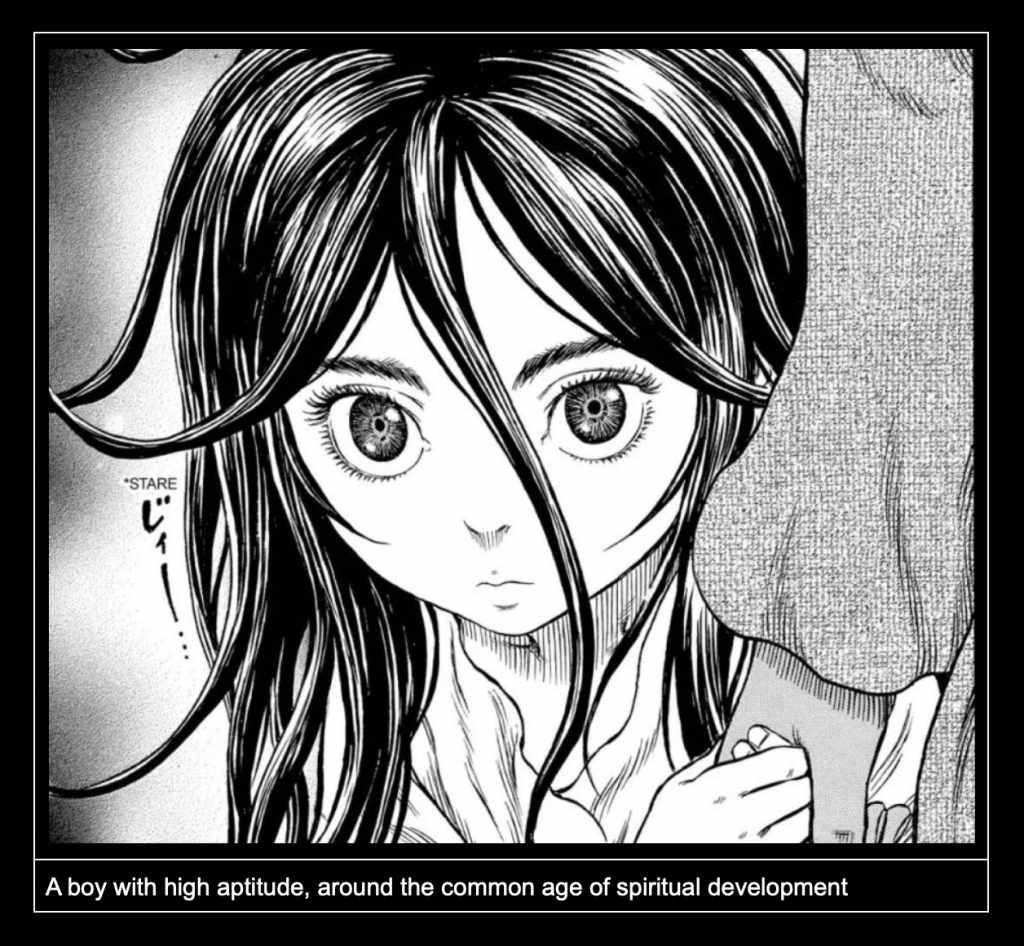
II. Properties of Karma
A. Common Abilities
Inheritors of Karma have two sources they can draw power from(their own spirit and the spirit they are contracted with). Because of this, with talent and training they can display a level of empowered feats by simple mastery of spiritual control.
- Strength
- Can display exceptional strength of equivalent to ~two people
- Durability
- Naturally more durable than the average person.
- Perception
- Displays keener senses than a normal person
- Healing
- Heals many times faster than the average person.
- Manifestation
- As a user develops affinity with their spirit, its consciousness will begin to manifest. This consciousness is a mere vestige; a shadow mirroring the personality of what the spirit was before its death.
- This Spirit will display primitive thought, personality, and communication and will attempt to influence the user according to its will, sometimes forcefully.
- These spirits will have high insight into the nature of other spirits.
B. Unique Abilities
- Karma
- Spirits will have lingering Karma based on their past life which manifests as unique abilities. Every Karma has its own unique systems of power.
The strength of a Karmic ability is dependent on the affinity between the User and the Spirit and the User’s spiritual proficiency. A user can improve their affinity to their Karma over time.
III. Cost of Karma
Because the power of a Karma is tied to affinity, a Spirit may tempt the user to act according to its Fate (Ex. If bound to the spirit of a charitable doctor, it may command the User to heal the sick. If bound to the spirit of a rageful spouse, they may tempt the user to kill unfaithful people). To unskilled Spirit Users, these temptations can be indiscernible from their very own thoughts.

IV. Artifacts for Inheritance
Having a weak, unknown, or unsuitable Karma is not a risk everyone has to take. Certain groups have developed methods to capture spirits and store them through artifacts. These captured spirits can be used to inherit Karmas with known properties. By collecting powerful Karmas and documenting their abilities, groups can accumulate power and gain a large advantage over those who inherit unknown Karma.
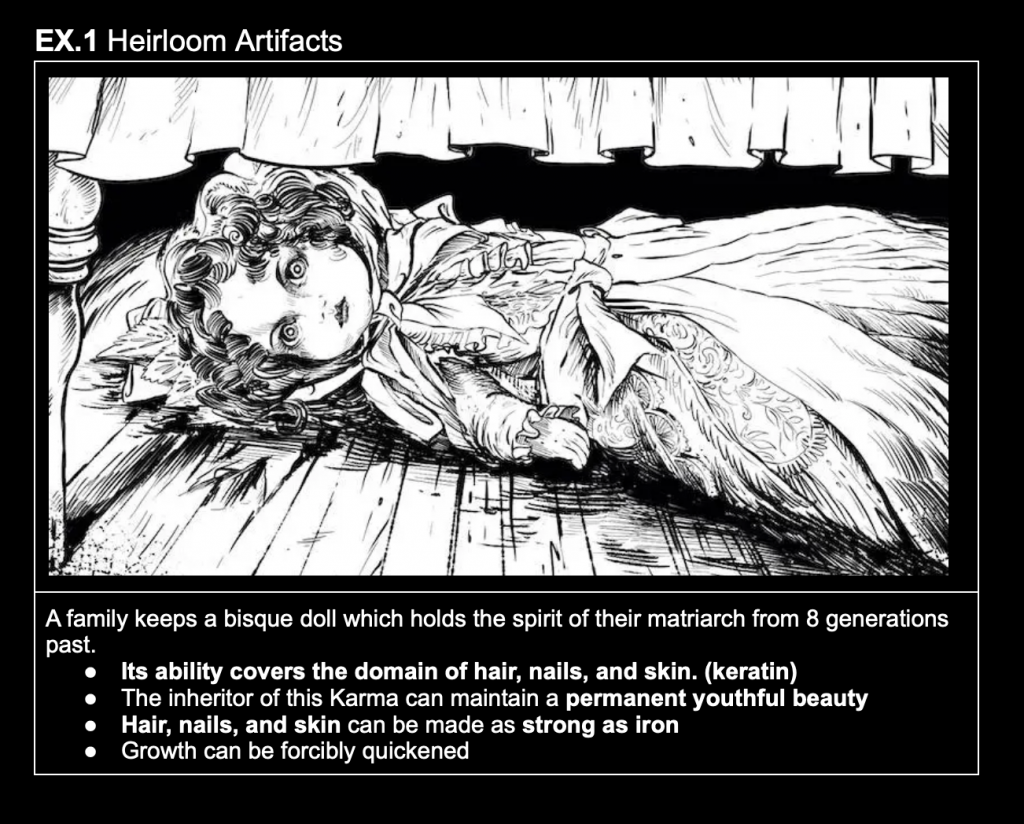
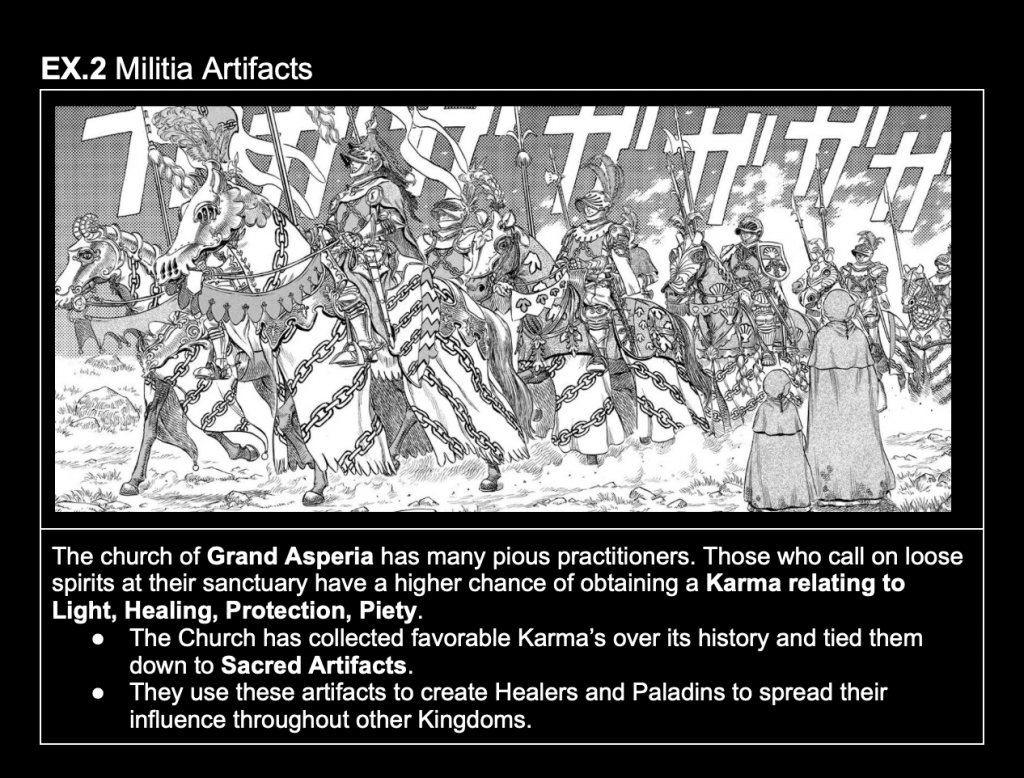
V. Artifacts as Weaponry
Artifacts can be used to manifest a portion of the Karma they are carrying.
- A sword carrying a lightning Karma may have the ability to create electrical current.
- A mask carrying a perception Karma may display the ability to see through walls.
- Chains carrying a water Karma might be used to suppress high temperatures.
However, as Artifact Karmas are not bound by a covenant, they have caveats for use:
- Their Karma is many times weaker than an inherited Karma
- Their Karma is much less versatile in its usage
- Their Karma requires many times more spiritual energy to manifest
- The Artifact’s loose spirit cannot be used as a source of energy so must manifest its ability through external energy provided by the wielder
Despite all these drawbacks, unbound Karmas can complement a user’s natural Karma abilities and increase a user’s versatility by many times.
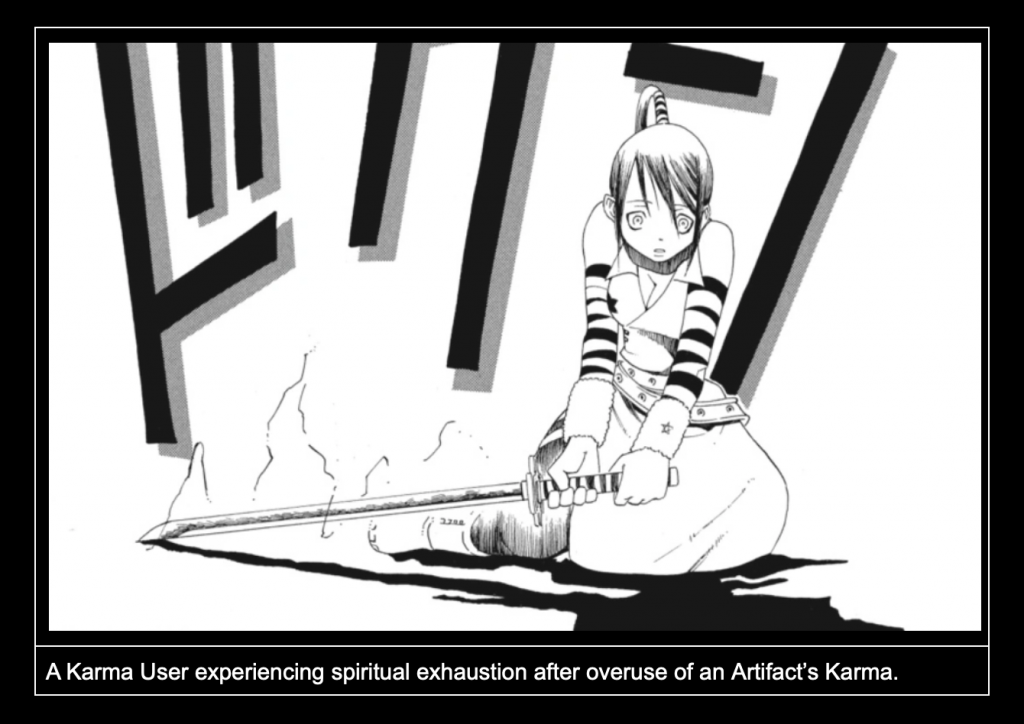
VI. Karmic Backlash & Rejection
When initially bonded with a spirit, the user must have affinity with the spirit’s Karma for the initial covenant to be possible. However, as a person grows and changes overtime, they can drift away from the Karma of their bonded spirit (Ex. a User binding to a violent Karma, but mellowing out over time). This misalignment will lead to increasingly severe consequences as the User strays further away from their contracted Karma.
Progression of Karmic Rejection
- Degradation of Powers
- The user’s powers are affected by how much affinity they have with their spirit’s Karma. The strength of the user’s power decreases as their affinity does.
- Reversal in Spiritual control
- The user will find it harder to access their contracted spirit as a source of energy.
- Their spirit’s energy will become closed off to them, and eventually may start siphoning the User’s spiritual energy instead.
- Karmic Backlash
- Eventually, the misalignment between User and Spirit can become too much, and a backlash / rejection occurs.
- A backlash can come in many forms. Usually the bond with the spirit forcefully breaks. As it leaves the User, it will cripple them without doubt. More commonly, they will be left dead.
- Because of the adverse effect of Karmic rejection, Users of Karma will take great care in choosing a spirit they are naturally aligned with.
- This also means that a large factor in what makes a Spirit sought after is not only how strong their powers are, but how easy it is to maintain Karmic balance with the spirit.
- Ex. a violent Karma can manifest powerful abilities but requires a dark mind to be in alignment.
VII. How Karma Shapes the World
- Military
- Strong Karmas are collected, documented, and passed down.
- A Militia’s might is heavily based on the capability of their Karma users.
- Obtaining a strong Karmic ability may be reason enough for a campaign.
- Culture
- The knowledge of spirits has shaped religions and traditions around the world.
- Karmas found in one area can vary greatly from Karmas found in another.
- Ex. Spirits near a volcano town are more likely to be related to heat than spirits in a fishing town. Karma users from that volcano town more commonly have fire affinities as a result.
- Having a different distribution of Karma abilities can greatly change the way of life in an area.
- Karmas can gain infamy or renown from the exploits of its users. (Ex. A royal lineage can pass down right-to-rule through inheritance of a Royal spirit)
- Industry
- Karmas can allow users to participate in trade & industry and exploit their abilities to make a living.
- Diplomacy
- Artifacts containing unique / historical Karmas can also be used as diplomatic tokens of trade.
- Countries / Organizations known for having certain Karma users may be sought out by others in times of need.
Table of Contents
